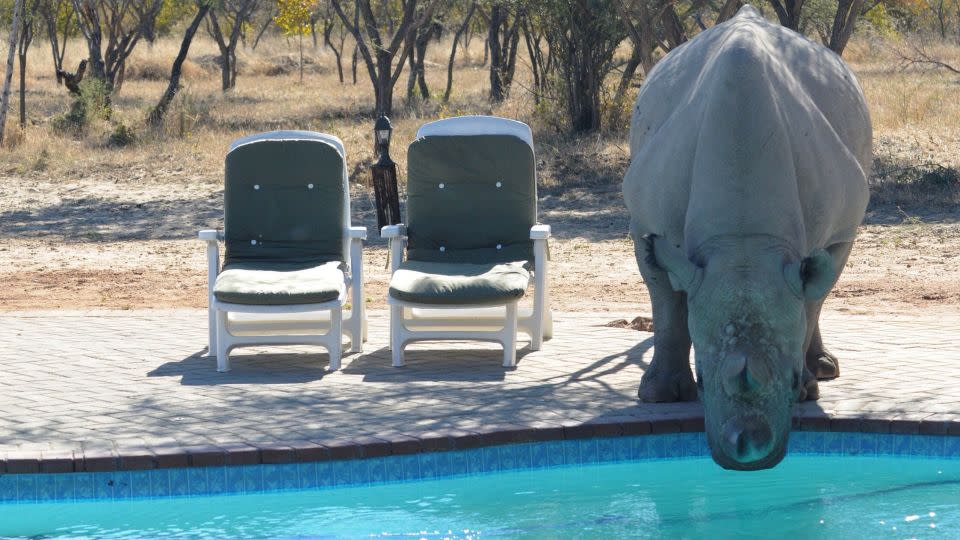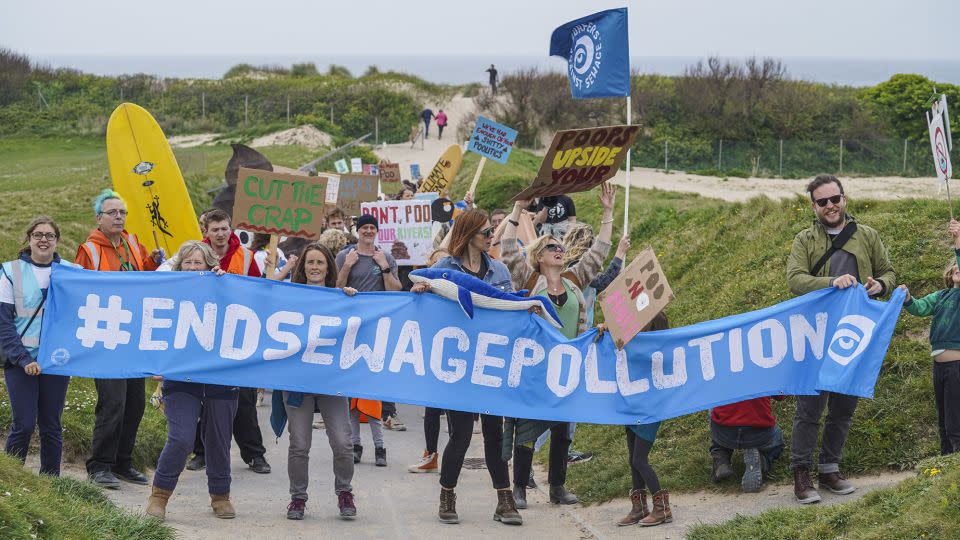How to make your next vacation better for the environment
Editor’s Note: The views expressed in this commentary are solely those of the writer. CNN is showcasing the work of The Conversation, a collaboration between journalists and academics to provide news analysis and commentary. The content is produced solely by The Conversation.
Being an environmentally friendly tourist can be challenging. Tourism is an industry that brings many negative environmental impacts – our pleasure often comes at the expense of local habitats or wildlife.
Maya Bay on Thailand’s uninhabited Ko Phi Phi Leh island became famous as the location of the 2000 Hollywood movie “The Beach.” But this led to rapid growth in visitors to the bay – as many as 8,000 a day at its peak – and put enormous strain on the bay’s natural habitats.
In 2018, the bay was closed to tourists for four years to let its coral reefs and wildlife recover.
But tourism can also be an inspiring way to connect with oneself, with others and with new places. As tourists, we can learn, share and contribute to positive environmental practices.
As a tourist, you also have influence. The money you spend, the social interactions you have and the resources you consume all help to shape an area.
So here are four pieces of advice for making your next vacation better for the environment.
Spend locally
We’ve all heard variations on the mantra “take only memories, leave only footprints”. This message of less consumption and lower impact is a good ethos for environmentally sensitive tourism. The first thing to do is think about how you can leave more positive footprints behind.
An excellent way to make the most of your economic footprint is to stay and shop in independent businesses. These businesses tend to pay local taxes and are owned by and employ local people. More of the money you spend stays in the immediate area as a result.
Where tourist money directly benefits local people and businesses, their support for conservation is often encouraged. Tourists visiting rhino sanctuaries in Botswana, for example, bring income and support jobs. In 2010, the country’s Khama Rhino Sanctuary employed 26 permanent staff and many more casual laborers.
This economic security can, in turn, prompt local people to appreciate the importance of protecting vulnerable animal species like rhinos. Separate research on people living around Kenya’s Maasai Mara nature reserve found that people whose livelihoods were dependent on tourism were more likely to support efforts to conserve local wildlife.

Tread lightly
Tourism creates waste and uses up resources. Treading carefully will minimise the environmental impact you have on your vacation destination.
A simple way to lower your environmental footprint is to use fewer resources at every stage of your vacation. A single tourist uses 300 liters of water in their holiday accommodation on average each night. Reusing towels, flushing the toilet less and shortening your shower time can all help to reduce demand for water resources.
Thinking about the footprints you leave as a tourist is a useful mindset. You may even become more aware of the positive legacy you can leave behind.
Learn about the local area and the environmental issues that matter there. If habitat loss is a problem, contribute to local organisations that support conservation. Organisations like the National Trust even offer vacations in the UK that help to fund their work.
Place matters
Tourism shifts you away from the familiar and gives you space for self-reflection. Research has found that people have been inspired by travel to make life changes such as relocating or shifting career.
Many keen rock climbers, for instance, adopt a minimalist and mobile lifestyle. One study on climbers’ lifestyles in the US showed that the challenges of life on the road, gatherings at campgrounds and the considerable amount of time spent in nature can be enriching.
Rock climbers’ lifestyles are inspired by and connected to natural settings. And many alternative types of tourism are too. These tourists can become powerful advocates for the protection of the places they care deeply about. Surf tourists, for example, have driven various campaigns against the discharge of sewage into UK bathing waters.
You and those you travel with can be similar cheerleaders for the places you care about. Join organizations fighting for their conservation, contribute to their sustainable development and share your appreciation of these places with others.

Stay curious
A final thing you can do as a tourist is to keep exploring. It can be tempting to stay in a tourist bubble and not leave the confines of your resort or stick with familiar travel groups and activities.
Cruises are a classic example of bubble tourism. The places visited do not really matter; the floating hotel is the main attraction.
But cruise tourism rarely benefits local populations and brings significant negative environmental impacts. In the Trujillo Bay area of Honduras, for example, increases in garbage and sewage have been reported since commercial cruise tourism began operating in the area in 2014.
Similar concerns have prompted calls to restrict cruise tourism in popular European destinations like Venice, Marseille and Barcelona. In 2022, more than 50,000 people signed a petition to ban cruise ships from Marseille.
Going beyond familiar or fashionable tourist bubbles can help you avoid such negative associations. Short-haul city breaks are a more environmentally friendly option.
Travelers to these destinations are more likely to use means of transportation that are associated with less CO₂ emissions than long-haul travel, such as trains or coaches. And in urban areas, their activities are likely to take place in a concentrated geographical area.
Thinking about the footprints you leave and the memories you take can help you to become a more environmentally aware tourist. Leave positive imprints behind, tread carefully, put yourself out there and keep exploring.
This is a mantra to adopt and share with your travel groups to get the most out of your holiday experiences while simultaneously reducing your impact on the planet.
Editor’s Note: Brendan Canavan is a senior lecturer in marketing at the University of Nottingham.
For more CNN news and newsletters create an account at CNN.com

